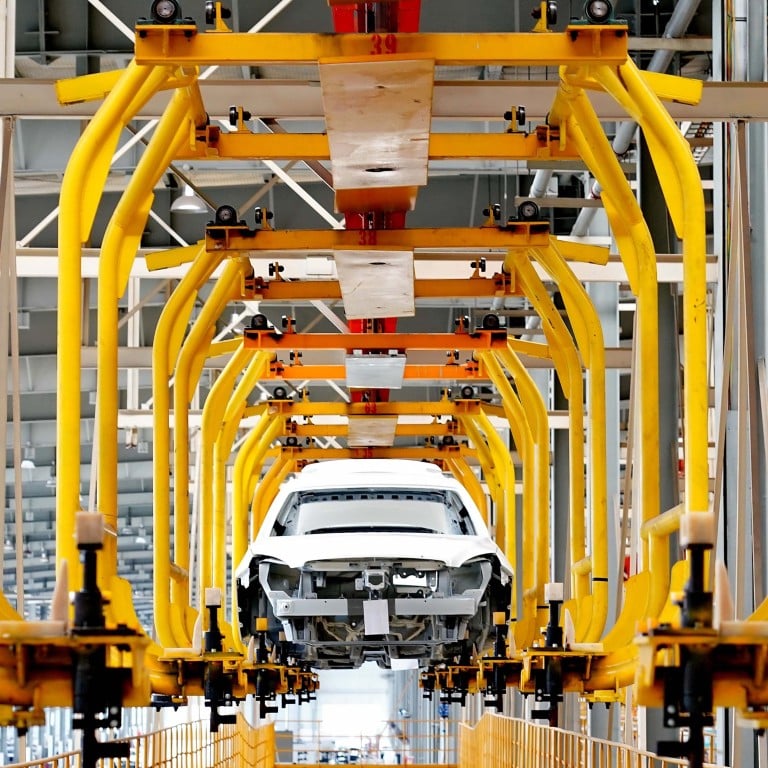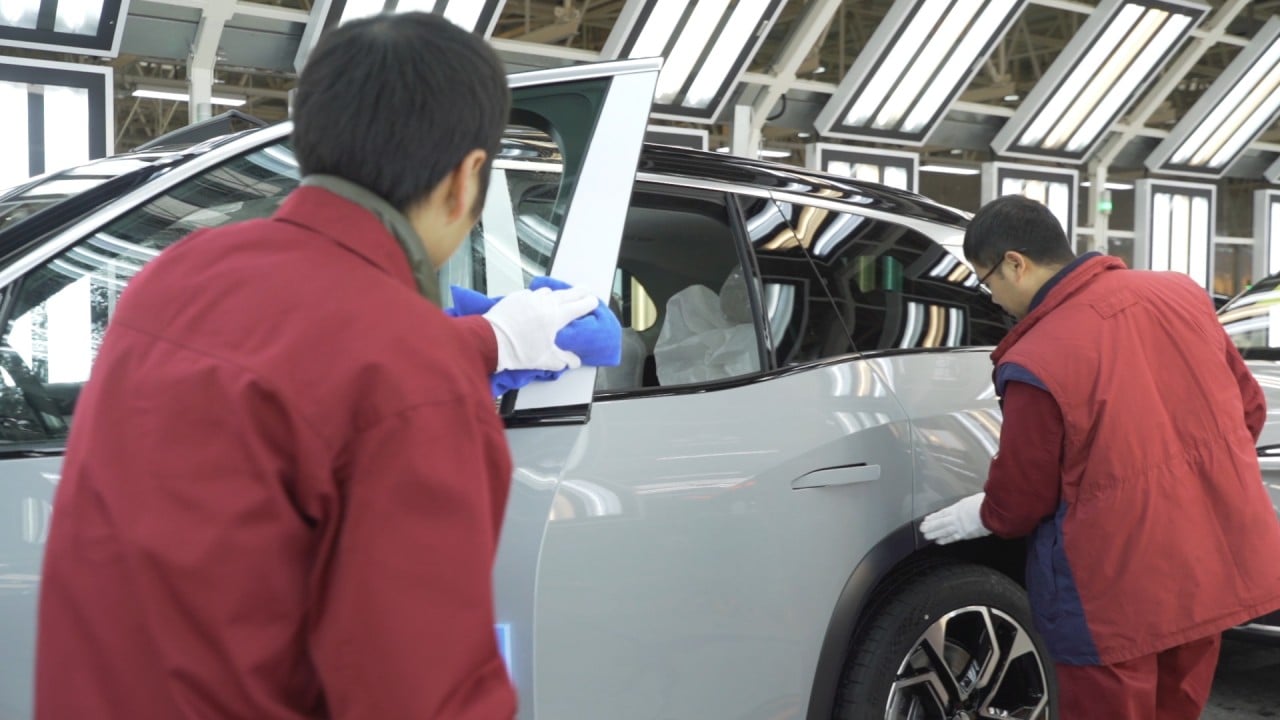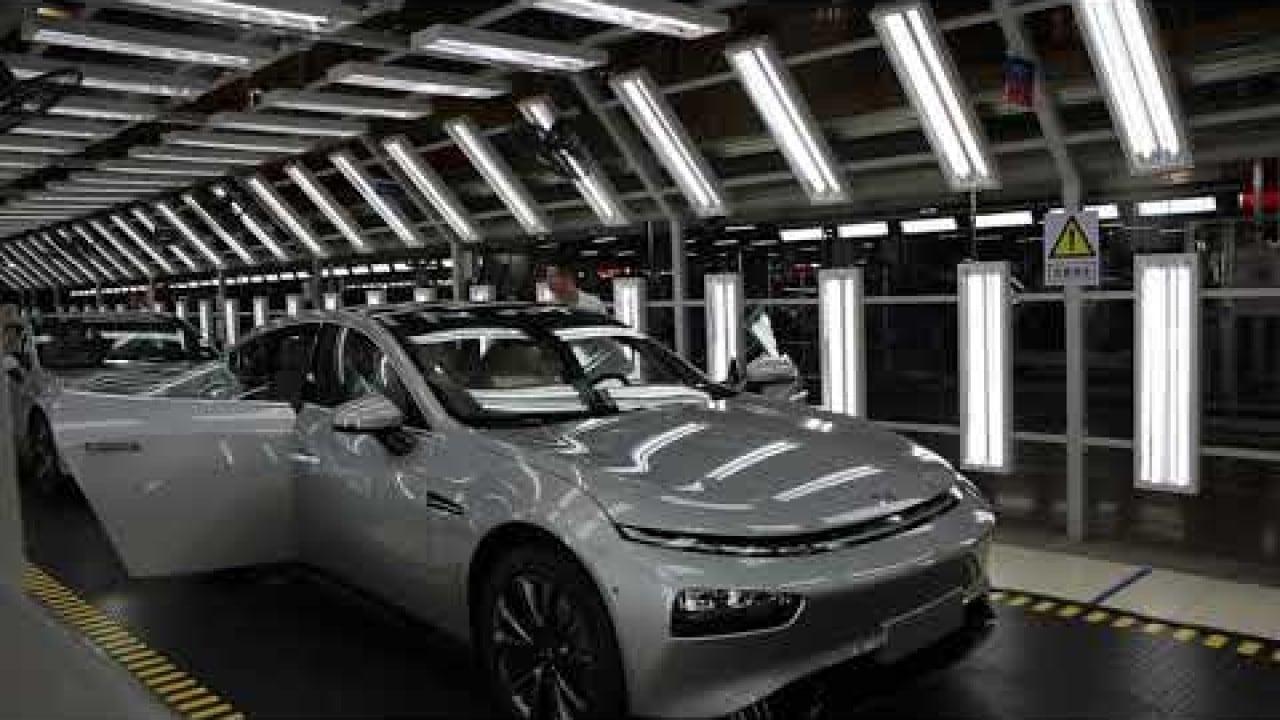
EV battery supply chain firms seek diversification as Biden order shines more light on China reliance
- Australian-listed BlackEarth and its German partner LuxCarbon GmbH have joined the European Battery Alliance
- The move came two weeks after US President Joe Biden ordered a review of American supply chains for critical products crucial to the tech and defence sectors
Amid a global review of supply chains, centred on reducing reliance on countries such as China, an Australian-listed critical commodities specialist and its German-based graphite partner have joined the 500-member European Battery Alliance to provide products for the electric vehicle market.
Last week, Australia also unveiled a 10-year road map to boost its processing and manufacturing as part of a plan to challenge China’s dominance in the supply of products key to the transition to clean energy.
“The team at BlackEarth are working toward the establishment of a downstream processing plant, and we see the European market as a key destination for our range of products,” BlackEarth managing director Tom Revy said, with the company adding that the decision to join the alliance was made before Biden became president or the Australian government released its plans.
“Many of the existing [alliance] members are already engaged with our partner in Europe, and this provides us with enormous opportunities that are unique to BlackEarth.”

01:21
Nio enhances production efficiency amid rising orders for its electric-powered SUVs
The alliance, launched in 2017 to secure a stable battery cell manufacturing value chain in Europe, said in a separate statement that Biden’s move was reflective of its own long-held strategy to build alternative supply chains for the production of batteries that would correct the imbalance in the global ecosystem.
BlackEarth has a graphite mine in Madagascar and is exploring a nickel-copper-platinum mine in Western Australia.
With graphite and nickel key raw materials for the production of batteries, BlackEarth also said a significant amount from the second stage phase of its Madagascar graphite mine would be provided to alliance members for use in the development of green technology battery products for electric cars.
Biden push to reduce US dependence on foreign suppliers in key sectors ‘faces many hurdles’
In early February, BlackEarth reached an agreement to provide graphite to Urbix Resources, a processor based in the United States.
In the global battery market as a whole, China and Japan dominate the production of lithium-ion batteries, while the US has a bigger presence in non-lithium ion battery manufacturing, according to North American industrial sourcing platform Thomas.
The supply of lithium-ion batteries has become increasingly critical given its use in smartphones and electric vehicles.
Globally, firms have long been looking to diversify their supply chains by establishing backup suppliers outside China in what was sometimes called “the China Plus One Strategy”, said RaboResearch senior economist Raphie Hayat.
China could still influence the supply of batteries somewhat by pressuring countries that make battery components
Biden’s order may accelerate the move for US firms to source more from outside China, including Taiwan, South Korea and Malaysia for semiconductors and minerals and metals like rare earth, but it is unlikely that they will be able to diversify completely, Hayat added.
“For general batteries, it could be a bit easier since ‘only’ 26 per cent of all the batteries that are exported come from China. However, for very specialised batteries, such as those used in electric cars, China might have a much bigger share,” Hayat said.
“Also, don’t forget that China could still influence the supply of batteries somewhat by pressuring countries that make battery components. Australia, for example, is one of the world’s largest exporters of lithium, a critical component in batteries, and China is Australia’s number one export market.”

01:56
Inside Chinese electric vehicle maker Xpeng's factory in Zhaoqing city
Australia is the world’s biggest lithium exporter, and in 2019, produced 55 per cent of the global lithium supply with most of it going to China.
“For Australia, diverting its lithium exports elsewhere quickly would not be easy I think, in the longer term yes perhaps, but in the shorter [term] they would have difficulty finding a market as big as China,” Hayat said.
As for the Biden review, it would take time, money and effort to break up a “tightly calibrated and intertwined global supply chain”, Hayat added.
“In order to actually move a part of a supply chain to another country, that country has to have a combination of political stability, specialisation in the product you want to source, ease of doing business and low wages,” Hayat added.
The US doesn’t have much experience with industrial policy, and the political consensus around this issue won’t last forever
Paul Lim, president of Singapore-based supply chain and logistics networking platform Supply Chain Asia, said many firms would realise that alternative supplies lead to higher costs of production, as discovered years ago when the US started a similar process.
“For the immediate future, supplies will still need to originate from Asia that is China,” he said.
Jeffrey Wright, US analyst with political risk consultancy Eurasia Group, said Biden’s review was good in theory but might face challenges with its execution.
“The US doesn’t have much experience with industrial policy, and the political consensus around this issue won’t last forever,” he said.

